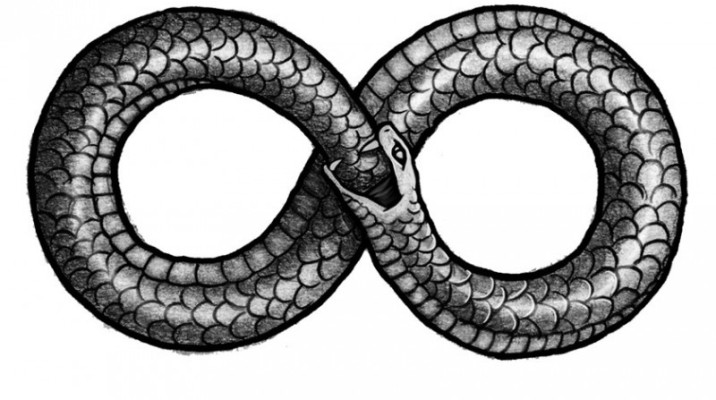“A foolish man thinks himself to be
wise. A wise man knows himself to be a fool.” This is a (modernized) quote by
William Shakespeare and I couldn’t agree with him more. The more that I learn,
the less I realize that I actually know. By learning just a little, I am
educated in the fact that I am in reality uneducated, thus inspiring me to
learn more. As soon as I tell myself that I am certain of anything, I give up
the never-ending path to knowledge. To truly learn anything, it must always contain
an element of mystery; otherwise, I am blinded by understanding. I have learned
so much during the past few months that it seems as though I now know nothing
all over again.
I know that I am not special, and that my journey is the exact same
as countless told in mythology, no matter how displaced it may be. I know I am
never alone; that someone else has felt my pain. Whether the story involves
Hercules’s 12 trials, or my writing a 12-page essay, the similarities are
arguably more prevalent than the differences. With an open mind and an active
imagination, one can look at every situation in a positive light and realize
that life really isn’t so serious, and it should exist purely to be enjoyed. I
have learned that sometimes I really do just need to hug a tree. Trees give me
life-supporting oxygen, shade, and peace; and ask for nothing in return.
Really, hugging one is the least I can do. And why not? Should social stigmas
really influence how we feel about ourselves? Who cares if that couple think
you’re weird while you hug that oak? They’re the weird ones. Just ask the oak. Within
reason, we should do whatever makes us happy, no matter what other people think
of it. Life is too short to spend it doing anything that doesn’t make you a
better person than you were the day before.
I know that the phrase that will signal my downfall is “…and then
one day…” This is indicative of the safe, mundane, room temperature lives which
we try to avoid living, though have a hard time escaping, until something
drastic happens. This “one day” will be an exemplary enactment of Darwin’s
survival of the fittest. If I survive this “one day,” I am sure I will have one
hell of a story to tell. If I don’t survive, perhaps I was not meant to, and my
journey will have reached an abrupt ending, hopefully sending me somewhere more
desirable.
But until that day, I will live life to the fullest. I will hug a
tree. I will be inspired. I will look at the mountains with the same awe and
amazement as I did when first I laid eyes upon them. I have learned that
instead of wondering what happens after my death, to consider instead what
happened before my life. I was born in the northwest corner of Germany, in the
farm country of Aurich. However, where was I one year before? I don’t remember…
Therefore, it couldn’t have been all
that bad. So why worry? I have learned that my destination is the same as my
point of origin. But that’s not what is important. Not yet at least. What is
important is my journey between the beginning and the end. My journey is
what will make my point of origin worth re-visiting. I will learn all that I
can until the day of my death (and hopefully afterwards). My thoughts are the
only possessions I’ll be able to bring with me wherever I end up, and it will
be a true shame if I run out of things to think while I’m there. I don’t know
how long it will be until I die. It could be tomorrow, it could be a hundred
years from now. I just need to make sure I spend every waking moment
productively.
I have learned the worst thing to be is plain. Ordinary. Lukewarm.
Room temperature. Indifferent. These are the worst conditions in which to end
your life. “Sebastian lived a safe, ordinary life and then one day… he died
because his body ceased to function.” Not very interesting, right? Why do you
think all the most epic gods didn’t die of old age? Instead they were killed by
the most drastic methods imaginable, even by today’s standards. But I’m going
off on a tangent. Although another thing Dr. Sexson has taught me is that when
I go off on tangents, I’m really just elaborating. I wouldn’t be saying it if
it didn’t matter.
Thank you so much for an extremely entertaining and educational class, Dr. Sexson. MSU will miss you.








